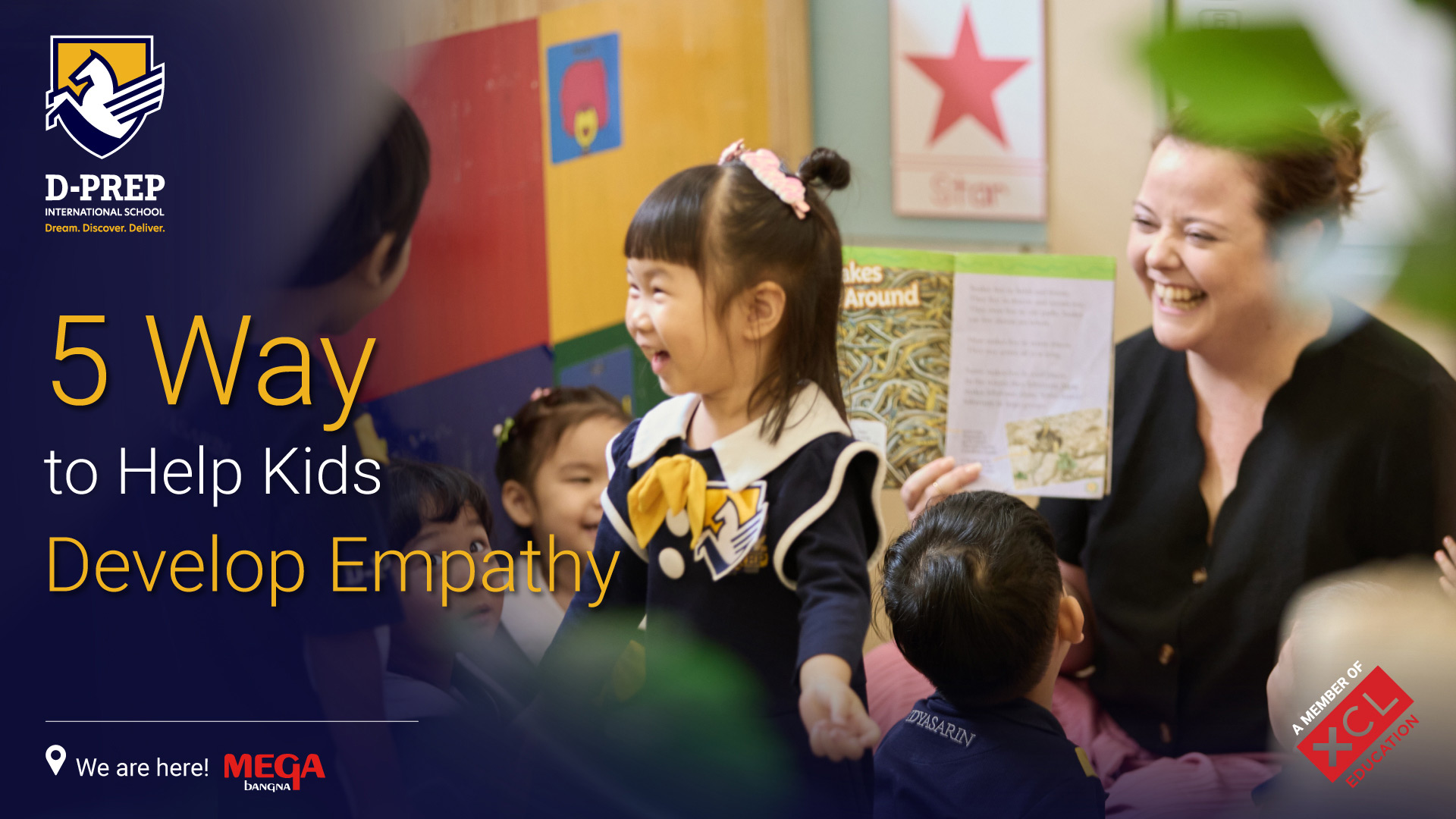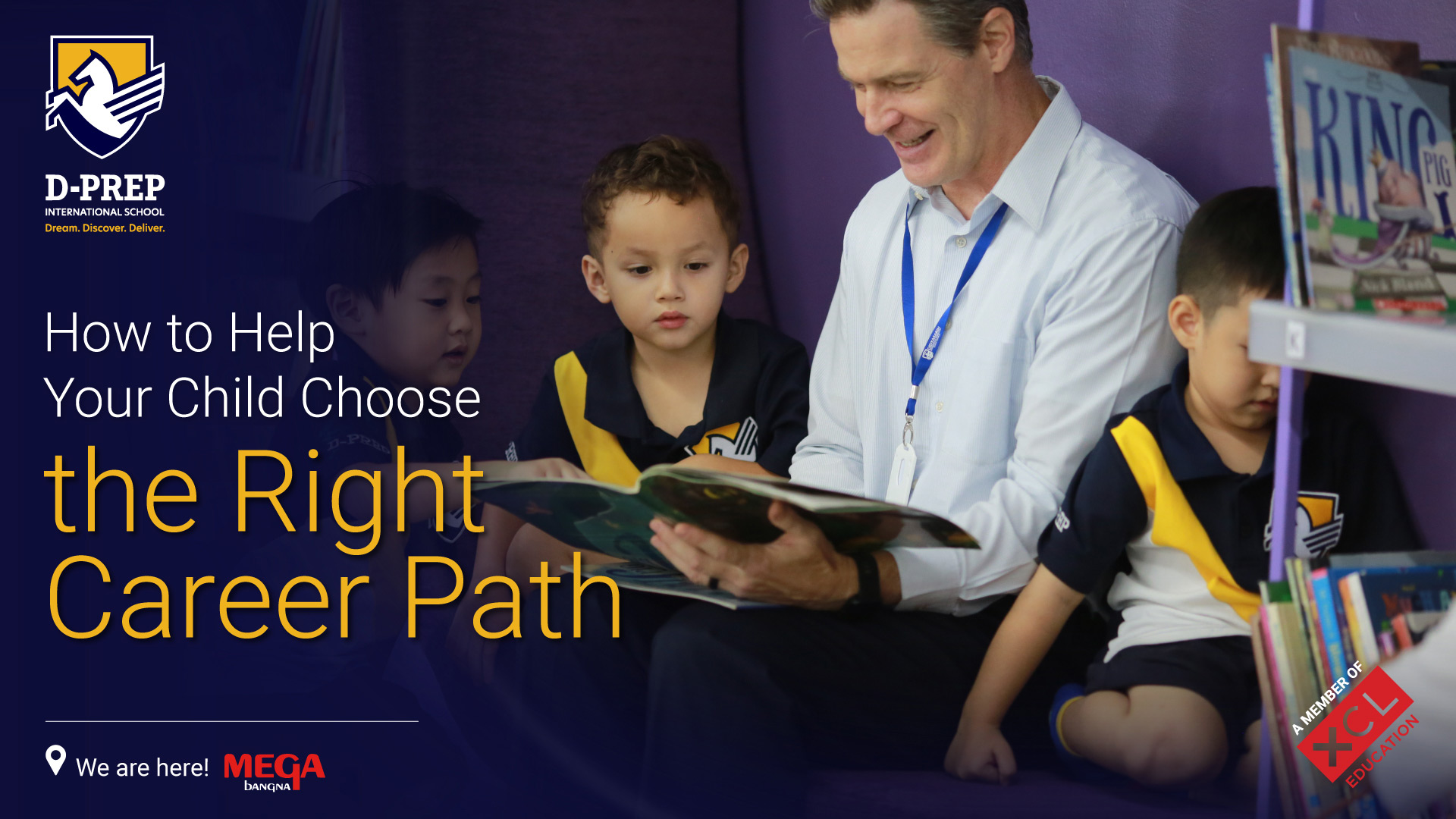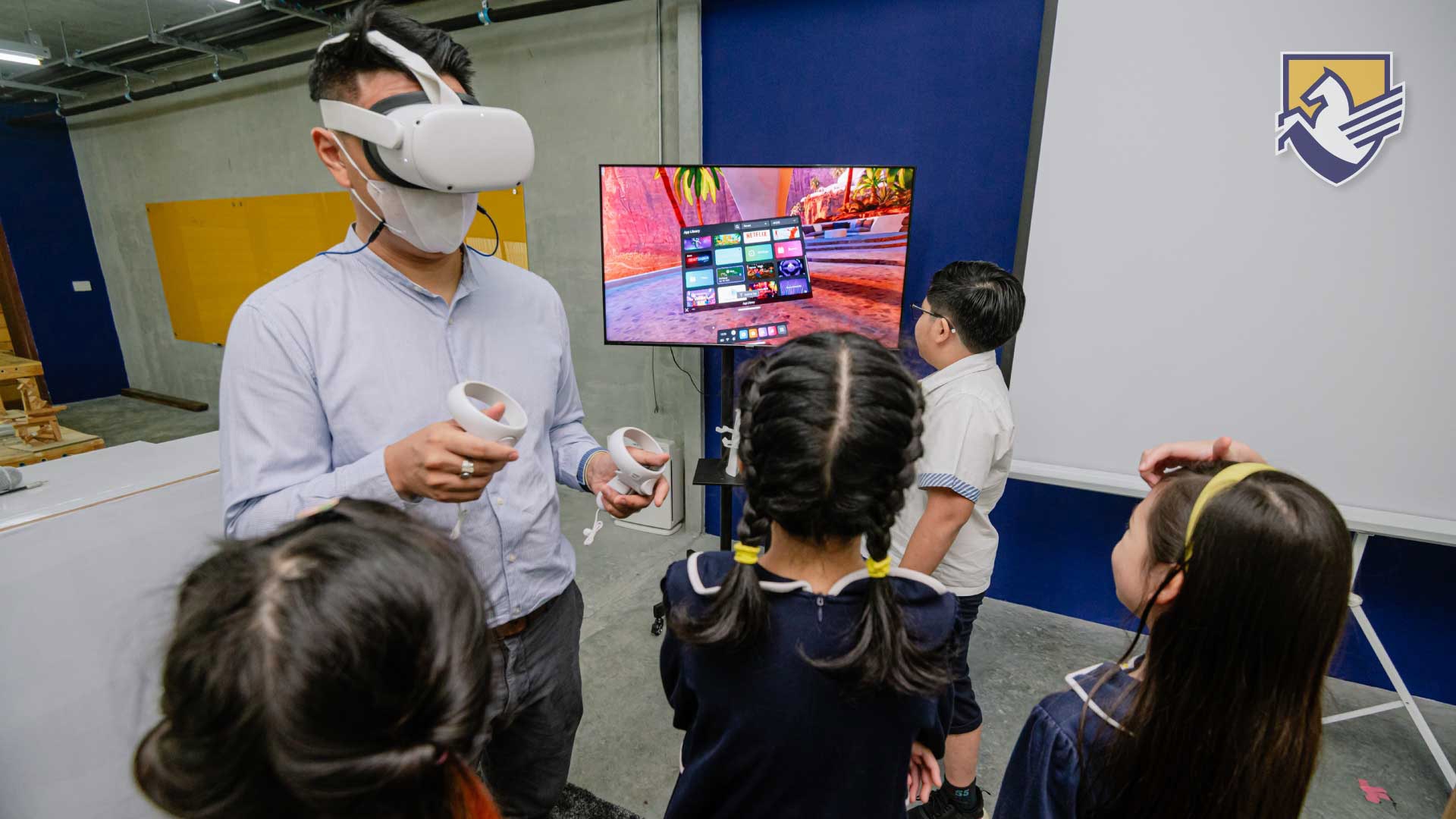Empathy is a critical life skill that plays a significant role in a child’s social and emotional development. It enables them to understand and share the feelings of others, fostering healthier relationships and enhancing their overall well-being. In this article, we will explore empathy and why it is essential for children.
What is Empathy?
Empathy is the ability to recognize, understand, and share the emotions and feelings of others. It involves being in tune with someone else’s perspective and responding with kindness and compassion. Empathy is not just about feeling sorry for someone. It’s about genuinely connecting with another person’s experiences, joys, and sorrows.
Why is Empathy Important for Children?
Empathy is crucial for children for several reasons. First and foremost, it helps them build meaningful relationships with peers and adults. Empathetic children are better equipped to resolve conflicts, cooperate with others, and communicate effectively. Furthermore, empathy promotes emotional intelligence, which is a vital life skill that enables children to manage their emotions and understand those of others.
Empathy also plays a significant role in preventing bullying and promoting inclusivity. When children can empathize with their peers, they are less likely to engage in harmful behavior and more likely to stand up for those who may be vulnerable.
Characteristics of an Empathic Child
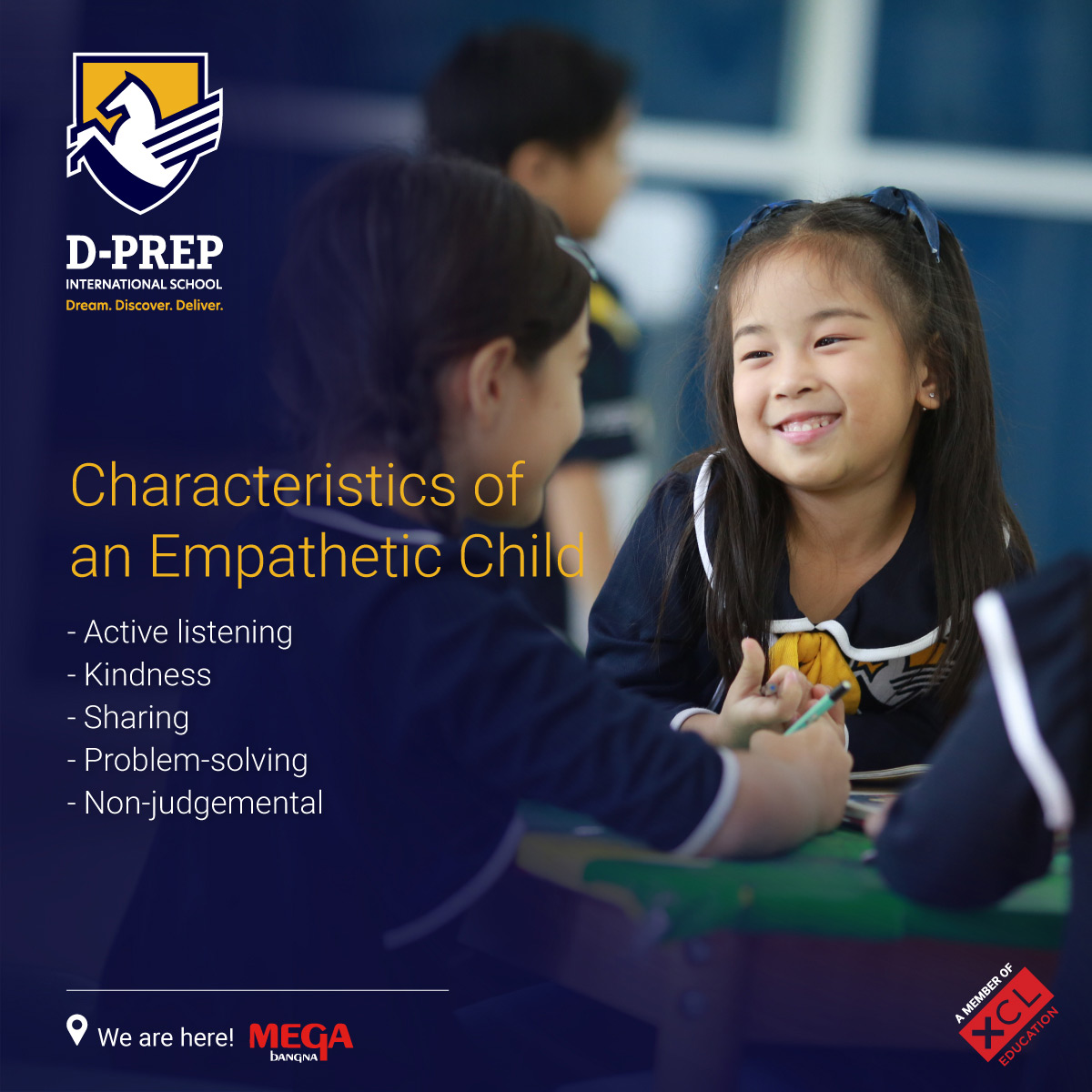
Empathic children typically exhibit certain characteristics, such as:
- Active Listening – Empathetic children pay close attention when someone is talking to them. They make an effort to understand the speaker’s feelings and experiences.
- Kindness – They show kindness and compassion towards others, even in difficult situations.
- Sharing – Empathetic children are more likely to share toys, possessions, and their time with others.
- Problem Solving – They are better at finding solutions to conflicts and helping friends when they are upset.
- Non-judgmental – Empathetic children are less likely to judge others based on their differences and more likely to accept them for who they are.
Difference between Empathy and Sympathy
Empathy and sympathy are often used interchangeably, but they have distinct meanings. Empathy involves understanding and sharing the feelings of others, while sympathy refers to feeling sorry for someone without necessarily understanding their emotions. Empathy involves a deeper emotional connection, whereas sympathy is more passive.
5 Ways Parents Can Help Kids Develop Empathy
- Model Empathy – Children learn by example. Parents should demonstrate empathy in their interactions with others. Children who see their parents being empathetic are more likely to develop these skills.
- Encourage Perspective-Taking – Help children understand different points of view by discussing situations from various angles. Ask them how they think others might feel in specific scenarios.
- Read Empathy-Enhancing Books – Choose books highlighting empathy and kindness as central themes. Discuss the stories and characters’ emotions with your child to reinforce the importance of empathy.
- Teach Emotional Vocabulary – Help your child identify and express their emotions. By understanding their feelings better, they can relate to others’ emotions more effectively.
- Practice Acts of Kindness – Encourage your child to perform random acts of kindness, such as helping a neighbor, donating to a charity, or volunteering. These actions can foster empathy and a sense of social responsibility.
How Empathy Skills Benefit Your Child’s Career
Empathy skills are not only valuable in personal relationships but also in the professional world. They are essential in developing strong communication, teamwork, and problem-solving abilities. Here’s how empathy ties into essential life skills:
Design Thinking
Empathy is a core component of design thinking, a problem-solving approach that prioritizes understanding the needs and perspectives of users. Empathetic individuals can design products, services, and experiences that truly resonate with people.
Soft Skills
Employers highly value soft skills such as empathy in the workplace. Empathetic employees are better at collaborating, resolving conflicts, and providing excellent customer service.
Communication
When children develop empathy, they become better at understanding and connecting with others, leading to more effective communication. To work effectively with others or a team, children must first learn active listening, which happens easier with empathy.
How D-PREP International School Builds Empathy in Children
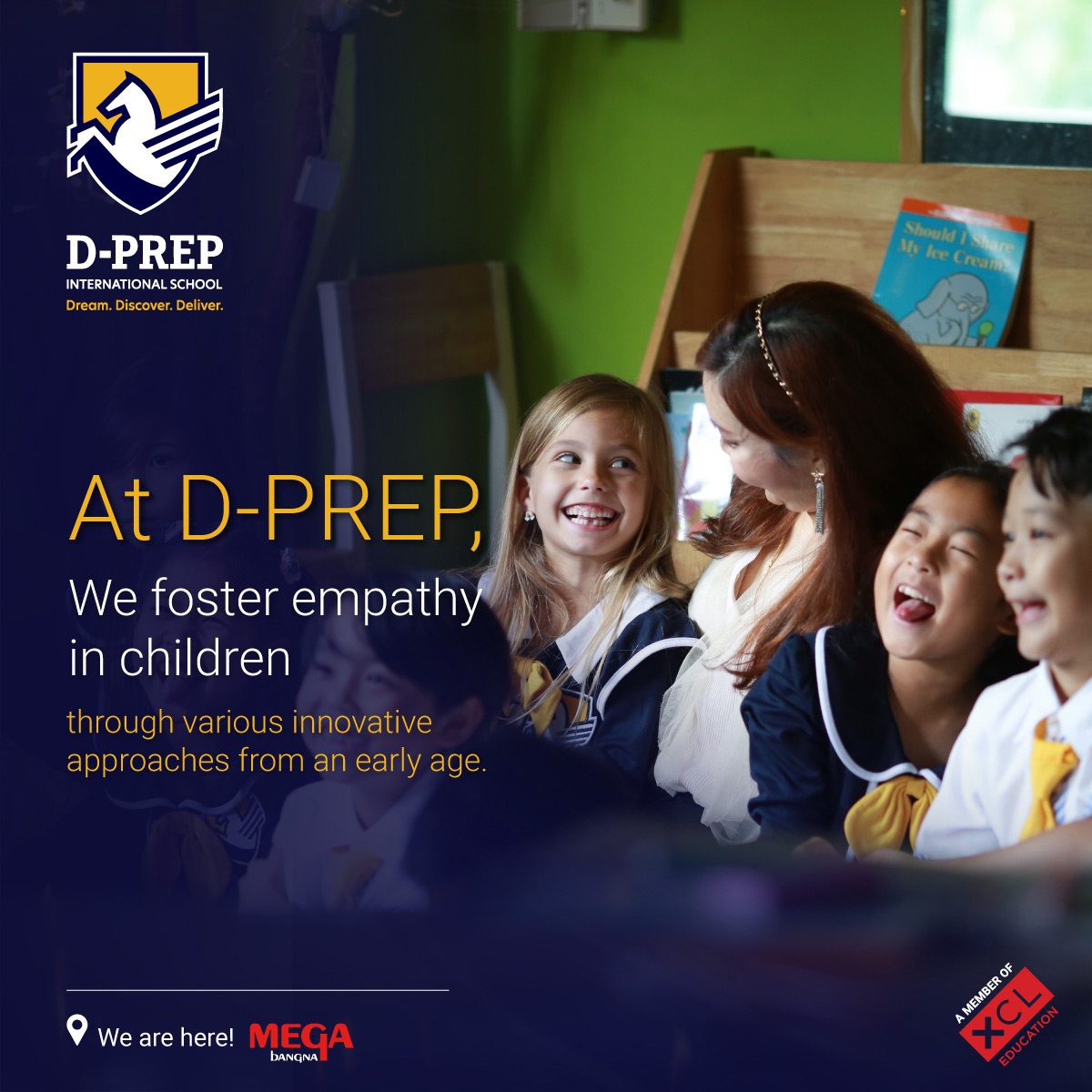
Empathy is a vital life skill that goes beyond academics. D-PREP International School recognizes the importance of fostering empathy in children and has integrated it into its curriculum through various innovative approaches.
One of the cornerstones of D-PREP’s empathy-building strategy is equipping children with essential life skills. From an early age, students are taught the significance of self-understanding, social understanding, and active citizenship. These foundational skills empower young learners to navigate the complexities of human interactions with kindness and compassion.
At D-PREP, teachers also introduce the “mood meter” concept as early as nursery, helping children recognize and name their emotions and learn how to regulate them. This emotional intelligence tool enables students to communicate their feelings better and empathize with others, creating a more emotionally intelligent and empathetic school community.
Compassion is another core value instilled in D-PREP students, teaching them to put themselves in other people’s shoes and care for those in need. This principle goes beyond theoretical knowledge, as it’s part of the school culture. At D-PREP, we encourage students to practice kindness, understanding, and support in their daily interactions.
In a world that demands empathy and compassion, D-PREP is committed to nurturing these qualities in everyday classroom lessons. Through innovative strategies, core values, and real-world experiences, we equip our young learners with the tools they need to succeed academically and positively impact society.
If you are interested in visiting the school, please contact
Address :
D-PREP International School
38, 38/1-3, 39, Moo 6,
Bangna Trad Rd., Km. 8,
Bang Kaeo, Bang Phli District,
Samut Prakan, Thailand 10540
Email: info@didyasarin
Google Map: https://info.dprep.ac.th/directions
Tel: 02-105-1757, 082-1515922
Website : www.dprep.ac.th
Facebook: DprepSchool
Line: @d-prep
IG : @dprepschool

